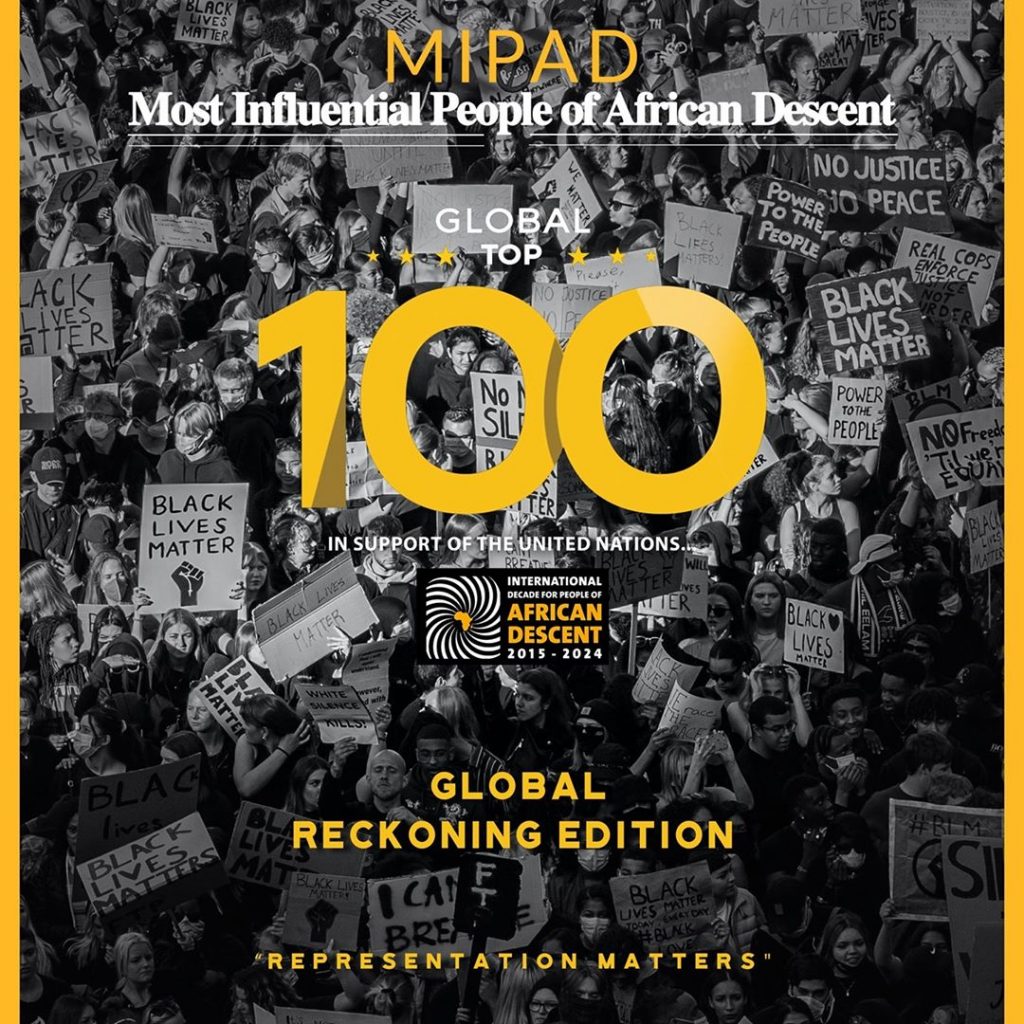
We conducted research into the presence of people of African descent within the largest institutions across the world – in politics & global governance, business, media, and humanitarian endeavors.
The astounding fact is that many of the huge companies we see, with brands we use on a daily basis have few to no people of African descent (PAD) as a part of their ecosystems, and therefore were not included in this year’s publication of MIPAD.
Many companies claim to stand against biased opportunity and spend millions on diversifying the recruitment of their workforce annually, yet in the highest levels of their management, the diversity is almost non-existent. A recent publication from CBS News showed that there is limited opportunity to advance for black people and consequently in the U.S alone, black people take up 3.2% of high positions in these large businesses, yet 13.4% of the population. This supports the findings of our research, which show that this trend also generally applies to large companies in many places around the world.
For example, according to our research, U.S based media companies such as The Times, Forbes and Fortune all have zero PAD in their senior management and board. As a black person myself, it was sad, yet unsurprising to me that those who report news and information to the whole population were not representative of the population themselves.
Within the business category, very large and familiar companies such as HSBC, Lloyds bank and The Royal Bank of Scotland all had zero PAD as well. This is very disappointing, especially as these same companies have issued statements opposing the discrimination of black people and desire to foster cultures of equality and diversity, especially as it was revealed that these banks were in some way built off of the slavery of people of African descent. More companies within this category with zero PAD also included Volkswagen Group, Santander, Allianz, IBM, and Siemens.
In the humanitarian section there was a slightly higher amount of African representation, however very familiar companies such as the Garfield Weston Foundation, The Church of England, and the Wellcome Trust all still had no PAD in their senior positions.
At first thought you may assume that this trend is only seen in the private sector, however it became clear that the public sector is no better. Within the highest levels of government in England (the Cabinet) there were no black people. Within the World Trade Organisation (WTO) and EU, these numbers were still the same. It’s very surprising in this sector because these are the organisations that govern and rule over all the people, yet clearly lack representation. These are the organisations who we trust to portray the voice of all the people and to implement equality and justice, yet they lack the inclusion of PAD.
Further research into businesses that provide basic necessities in the four categories of clothing, food, transport and shelter also showed very similar results. 4 of the 5 largest corporations in the clothing industry, such as Kering (which owns Gucci and Balenciaga), Adidas, LVMH (owner of Louis Vuitton) and Kering (which owns Zara) had zero PAD on their board of directors and senior management positions. These brands are all commonly worn and desired by fellow Africans, yet these companies seemingly target us for our money, paying no mind to us in the workplace.
In the mobility section, Toyota, BMW, Mercedes, and Audi all had zero PAD in their board and senior management. Furthermore, Link REIT and Simon Property Group showed the same trend in the shelter section, while Anheuser-Busch InBev (Owner of Beck’s, Budweiser, Corona, and many other alcoholic beverages) also had the no PAD in the foods category.
Overall, it’s clear that the proportional population of PAD in the community is not adequately reflected in the highest levels of management and board within many of these very well recognised public and private sector organisations. As a young, black man always seeking opportunities in the workplace, I am of the humble opinion that our findings represent the lack of equality and opportunity for people of colour, and this needs to be brought to light and changed.
We hope the MIPAD Global Reckoning Edition inspires a moment of reckoning for the world as this edition simultaneously celebrates those who are in these high positions, while highlighting those who were not listed because they do not exist yet at the highest levels of decision making in the world. We share these findings with you to inspire global and local institutions to be more intentional about diversity and inclusion because the talent exists. The only thing missing is the collective will to help steer our world onto a more equitable, inclusive, and sustainable path. And, when the world is ready to be intentional about DIVERSITY & INCLUSION, MIPAD will be here to support because our representation matters!
Written by Jonathan Olufowobi


